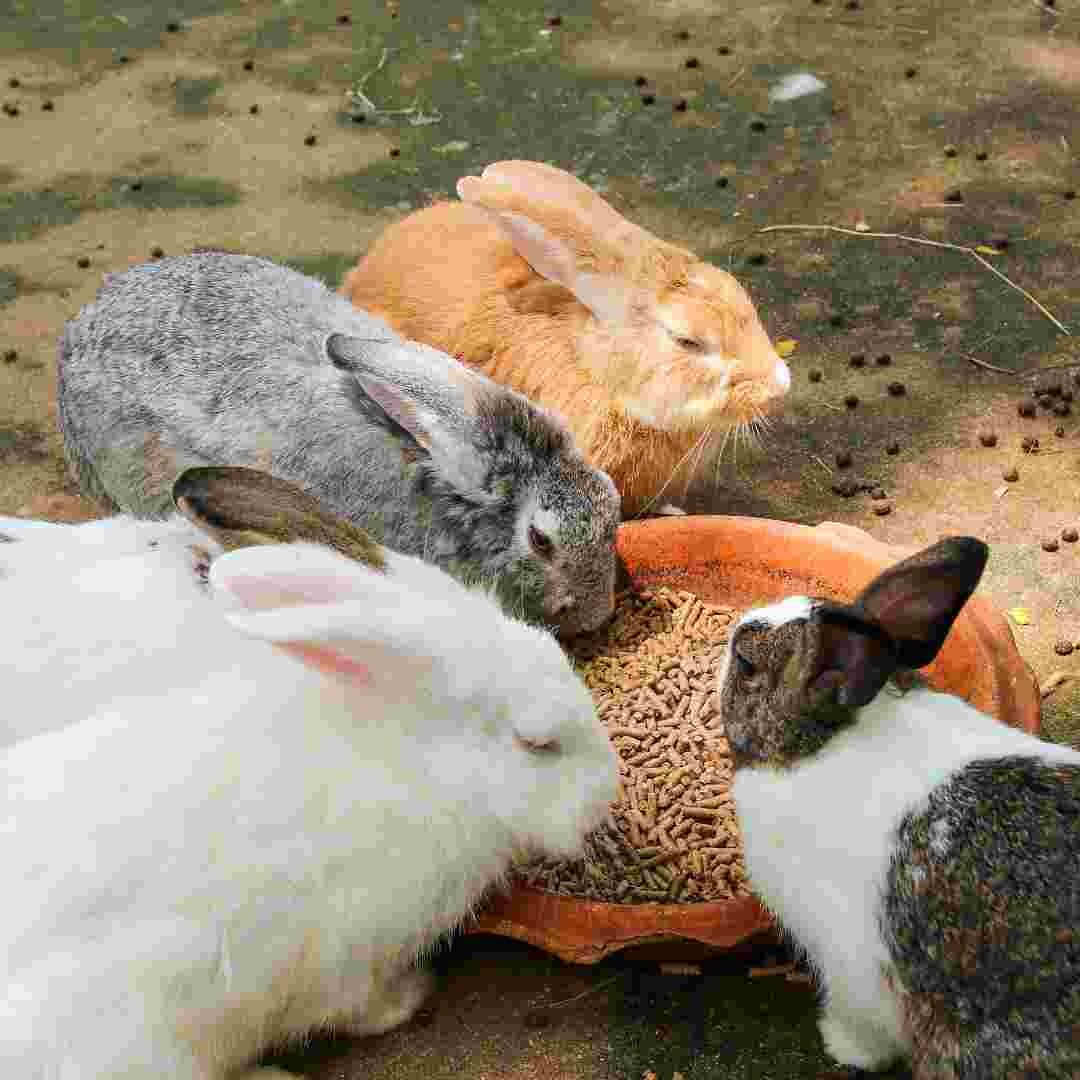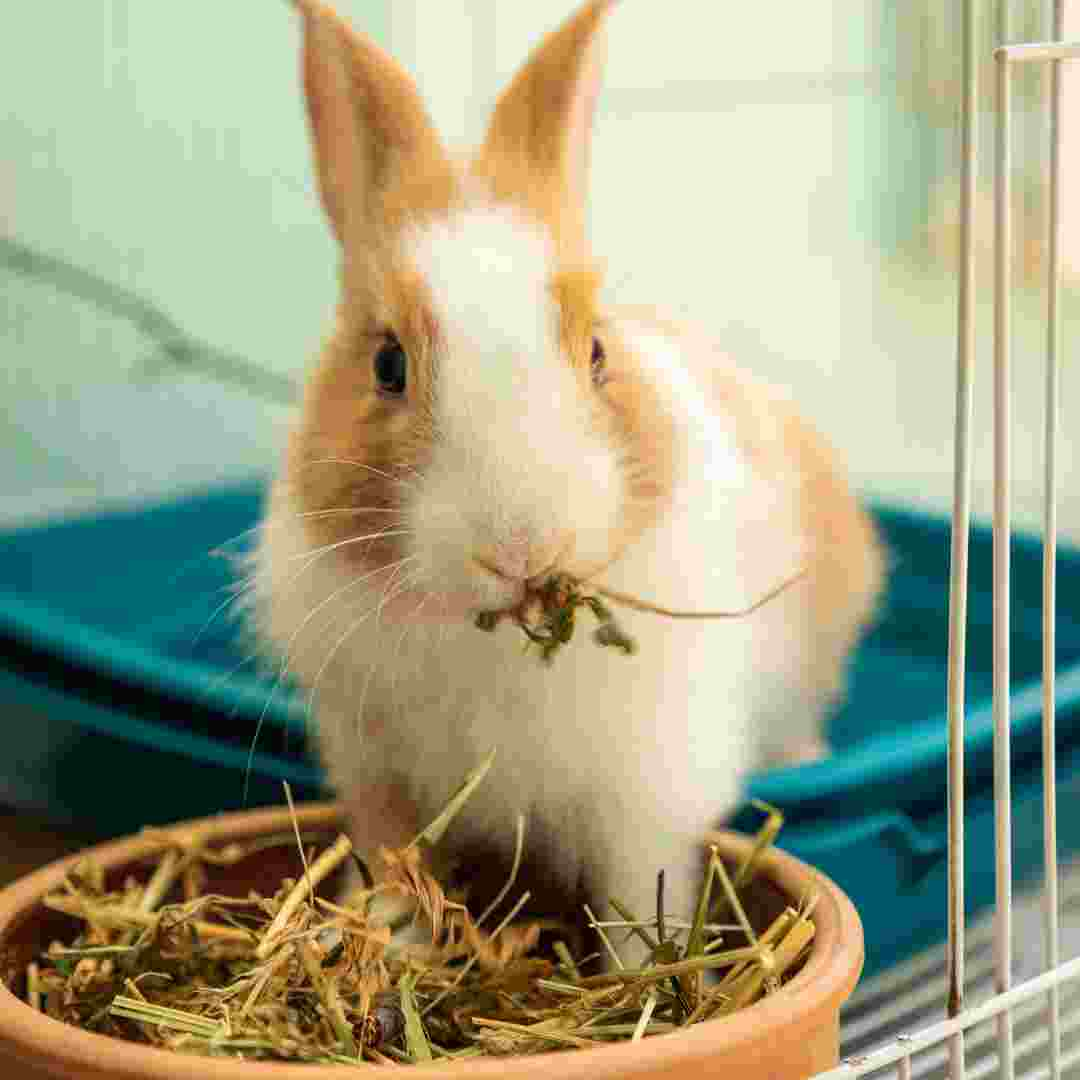Contents Table
Introduction
Benefits of Feeding Your Rabbit Fresh Vegetables
Rabbit Pellet Feeding Pros and Cons
How to Give Your Rabbit Enough Fibre
Best Rabbit Treats for healthy eating
Risks of Overfeeding Your Rabbit Fruit and Sweets
Q&A
Conclusion
Introduction
Rabbits are popular pets worldwide for good reason. They are affectionate and low-maintenance. Like all animals, they need a balanced diet to keep healthy. Rabbits are lucky to have many feeding sources. Fresh veggies, fruits, hay, and pellets can keep your rabbit happy and healthy. With the appropriate nutrition, your rabbit may live long and healthily.
Benefits of Feeding Your Rabbit Fresh Vegetables
Herbivorous rabbits need fresh veggies to keep healthy and happy. A varied diet of fresh vegetables helps boost digestion, nutrition, and immunity in rabbits.
First, give your rabbit a variety of fresh veggies to aid digestion. Carbohydrate-rich diets can upset rabbits' fragile digestive systems. Giving your rabbit a variety of fresh vegetables will ensure they get enough fibre and other nutrients to maintain their digestive system healthy.
Second, feeding your rabbit a variety of fresh veggies improves nutrition. Fresh veggies provide critical vitamins and minerals for rabbits. By feeding your rabbit a variety of fresh veggies, you may assure their health and strength.
Finally, giving your rabbit a variety of fresh veggies boosts their immune system. Antioxidants in fresh vegetables protect rabbits from sickness and infection. Giving your rabbit a variety of fresh veggies helps boost their immune system.
Finally, giving your rabbit a variety of fresh veggies can improve digestion, nutrition, and immunity. By feeding your rabbit a variety of fresh veggies, you may assure their health and strength.
Rabbit Pellet Feeding Pros and Cons
Rabbit pellets might help your pet acquire enough nutrition. Before feeding your rabbit pellets, examine the advantages and downsides.
Pros
Feeding rabbit pellets is beneficial since they are nutritionally balanced. Pellets give rabbits all the vitamins and minerals they need to stay healthy. They also include fibre, which helps rabbits digest. Pellets are handy and easy to store, making them ideal for busy pet parents.
Pellets also deteriorate less than other foods. This allows you to buy them in bulk and preserve them without spoiling.
Cons
One downside of rabbit pellets is their high calorie content. Lack of exercise can cause weight gain and other health issues in rabbits. Keep track of your rabbit's weight and regulate pellet intake.
Pellets may bore your rabbit. Without enough variety, your rabbit may get bored and quit eating. Add fresh veggies and goodies to your rabbit's diet to prevent this.
In conclusion, feeding your rabbit pellets can help it acquire enough nourishment. Before choosing, weigh the advantages and downsides. If you feed your rabbit pellets, watch its weight and add fresh vegetables and rewards.
How to Give Your Rabbit Enough Fibre
Rabbits must eat well to stay healthy. Rabbits need fibre to maintain their digestive systems. Tips for feeding your rabbit adequate fibre.
1. Give fresh hay. Your rabbit should eat mostly hay, which is strong in fibre and other nutrients. To feed your rabbit a balanced diet, offer timothy, oat, and meadow hay.
2. Serve fresh veggies. Fibre and other elements are abundant in vegetables. To feed your rabbit a balanced diet, include carrots, celery, and greens.
3. Serve fresh fruit. Fibre and other nutrients are abundant in fruit. To feed your rabbit a healthy diet, offer apples, bananas, and strawberries.
4. Feed balanced pellets. Fibre and other nutrients are abundant in pellets. Include timothy-based pellets in your rabbit's food to guarantee a balanced diet.
5. Watch your rabbit's diet. Check your rabbit's diet for fibre. If your rabbit needs more fibre, feed them additional hay, vegetables, fruit, or pellets.
Follow these tips to feed your rabbit adequate fibre. To keep your rabbit healthy, watch their diet and make sure they get the nutrition they need.
Best Rabbit Treats for healthy eating
Rabbits make great pets, but they need a balanced diet. Treats can diversify their diet and encourage good behaviour. However, rabbit treats should be nutritious. The finest rabbit treats for a healthy diet are:
1. Fresh Vegetables: Fresh vegetables supply vitamins and minerals to your rabbit. Carrots, celery, kale, and broccoli are good rabbit food.
2. Fruits: Your rabbit can enjoy fruits as a treat and source of vitamins and minerals. Apples, bananas, and strawberries are good rabbit foods.
3. Herbs: Herbs offer flavour and variety to rabbit food. Parsley, basil, and oregano are good rabbit herbs.
4. Hay is a delight and a staple for rabbits. Timothy hay, high in fibre and low in sugar, is ideal.
5. Nuts: Your rabbit can enjoy nuts for their protein and healthy fats. Almonds, walnuts, and hazelnuts are good rabbit food.
You may feed your rabbit a variety of healthful goodies to keep them healthy and happy.
Risks of Overfeeding Your Rabbit Fruit and Sweets
Fruit and sweets are attractive for rabbits, but only in moderation. Too much fruit and sweets can cause weight, dental, and digestive disorders in rabbits.
Rabbits given too much fruit and sweets often become obese. Rabbits are small and cannot withstand a lot of sugar and fat. Eating too much of these products can contribute to obesity and other health risks.
Too much fruit and sweets might cause dental issues in rabbits. Sugary and sticky foods can harm rabbit teeth. Eating too much of these products can wear down or shatter teeth, causing pain and difficulties eating.
Finally, too much fruit and sweets might cause intestinal issues in rabbits. These items can upset the rabbit's intestinal microbes, causing diarrhoea and bloating. Extreme cases can cause life-threatening gastric stasis.
Finally, rabbits should only eat fruit and sweets in moderation. These foods can cause obesity, dental disorders, and digestive concerns in rabbits.

Q&A
1. What veggies can rabbits eat?
A: Rabbits consume carrots, celery, kale, parsley, and spinach.
2. Can rabbits eat fruit?
A: Rabbits can consume apples, bananas, blueberries, and strawberries.
3. Can rabbits eat hay?
A: Yes, rabbits need hay at all times.
4. Can rabbits consume grains?
Rabbits can eat oats, barley, and wheat.
5. Can rabbits eat nuts?
No, rabbits should not eat nuts because they are heavy in fat and might cause stomach difficulties.
Conclusion
Daily, rabbits can consume fresh vegetables, fruits, hay, and a few pellets. They should always have clean, fresh water. A rabbit needs a varied diet to receive all the nutrients they need.
